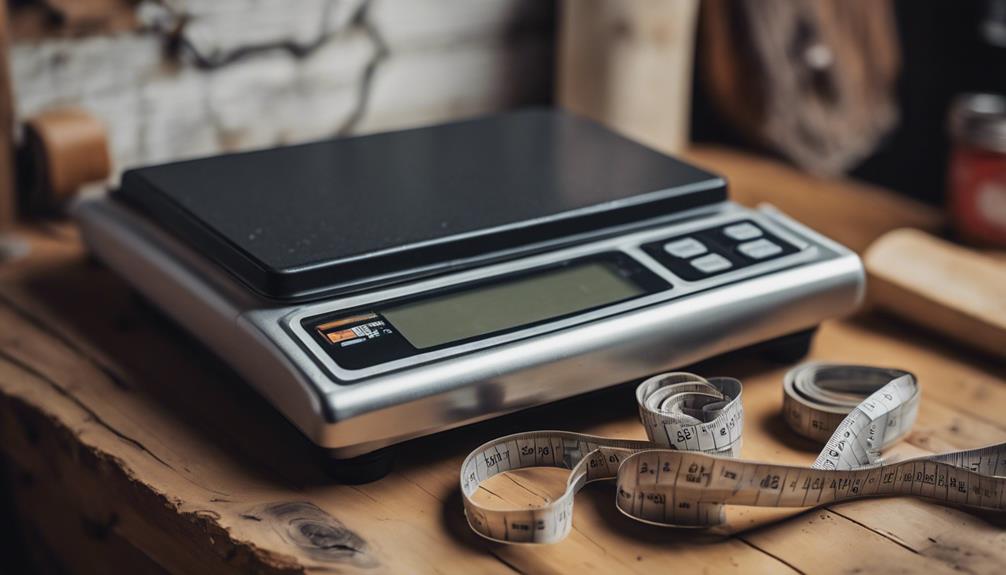Yes, you must register your camper conversion to meet legal requirements and guarantee you're compliant for safe road use. Begin by completing the Application for Texas Title and/or Registration (Form 130-U) and submitting it to your local county tax assessor-collector's office. You'll also need to provide documentation, like a certified weight certificate and interior photos of your camper. Each state may have specific requirements, and failing to register can lead to legal complications, especially regarding insurance. Understanding these rules can make your camper experience smoother and hassle-free, so there's more to explore on this topic.
Introduction
When converting a vehicle into a camper in Texas, you need to understand the registration requirements to guarantee you're compliant with the law.
First, you'll have to complete the Application for Texas Title and/or Registration (Form 130-U) and submit it to your county tax assessor-collector's office. This step is vital for your camper conversion to be recognized legally as an RV, which must meet specific definitions, including having cooking facilities, a toilet with exterior evacuation, and a potable water supply system.
You might also need a certified weight certificate and interior photographs of your conversion during the registration process. Compliance with Texas DOT regulations is essential for safe operation on public roads.
If you skip these registration steps, you could face legal issues, including fines. Additionally, failure to properly register could complicate insurance claims, leaving you vulnerable in case of an accident.
Background Information
When you think about camper van registration, it's important to understand its history and any recent changes in legislation that might affect you.
Knowing how registration requirements have evolved can help you avoid pitfalls and guarantee compliance.
Staying informed about these updates can save you time and trouble down the road.
Camper Van Registration History
Understanding the history of camper van registration reveals how regulations have evolved to secure safety and compliance for vehicle owners.
In Texas, if you've done a van conversion that includes vital living features like a potable water supply system or cooking facilities, your vehicle must be registered as an RV. This legal designation isn't just a formality; it impacts your insurance coverage and guarantees you meet specific safety standards.
The registration process involves submitting necessary documentation, including the Application for Texas Title and/or Registration (Form 130-U) and proof of ownership. It's essential to keep records of all installations and modifications, as these will be inspected to verify compliance with safety and weight regulations. Without proper registration, you might face complications that could affect your ability to use your camper van legally on the road.
In essence, understanding camper van registration history helps you navigate the requirements smoothly, guaranteeing your vehicle is recognized as a legitimate RV and protecting your investment through appropriate insurance coverage and legal compliance.
Recent Legislative Changes
Recent legislative changes across various states have clarified camper conversion registration requirements, making it easier for owners to guarantee compliance with safety standards. These updates often involve specific documentation and safety inspections, which verify your DIY camper conversions meet regulatory expectations.
Many states have introduced streamlined processes for converting and registering camper vans as RVs, reducing the bureaucratic hurdles you might face. This is particularly beneficial if you want to utilize your vehicle for temporary living quarters.
Legislation now often recognizes the unique needs of DIY camper conversions, allowing for better RV insurance options and minimizing the risks associated with misclassification.
Additionally, some states have amended tax codes to provide exemptions or reduced fees for RV registrations, incentivizing the conversion of vehicles for recreational use.
However, be aware that new laws may require additional safety inspections or certifications for converted vehicles. This guarantees they adhere to updated road safety and environmental standards.
Staying informed about these legislative changes will help you navigate the registration process smoothly and enjoy your camper van with peace of mind.
Recent Registration Trends

You might've noticed a surge in DIY camper conversions being registered as RVs lately.
Many states are rolling out new compliance guidelines to accommodate this trend, making the process smoother for you.
As regulations evolve, it's essential to stay informed about emerging RV conversion rules and how they affect your registration experience.
Emerging RV Conversion Regulations
States are increasingly tightening RV conversion regulations, reflecting a growing focus on safety and compliance in the registration process. If you're considering van conversions, it's vital to stay informed about these new requirements.
For instance, the Texas DMV mandates that RV conversions include at least four out of six life support systems to qualify for registration as a motor home. This is part of a broader trend where safety standards are becoming more stringent.
Insurance companies are also playing a significant role in this landscape. They now often require proof of conversion compliance with state regulations before they'll issue insurance policies for your converted RV. This means you'll need to have all your documentation in order, including any required certifications.
Additionally, many states now demand a certified weight certificate when you apply for registration. This helps guarantee that your vehicle doesn't exceed weight limits, which is essential for safety on the road.
Local tax offices can be valuable resources, providing guidance on the latest regulations as you navigate the complexities of converting and registering your vehicle.
New State Compliance Guidelines
With the rise in regulations, new compliance guidelines are shaping how camper conversions are registered across the country. Many states are now enforcing stricter registration processes, demanding proof of installed life support systems to meet legal requirements. You might find that obtaining a certified weight certificate has become vital, guaranteeing your converted vehicle complies with state standards and doesn't exceed weight limits.
Moreover, states are increasingly requiring detailed documentation for camper conversions. Be prepared to submit photographs of your conversion and an extensive list of installed amenities to verify compliance. Some states are also streamlining their registration processes for RVs that meet specific safety and functional criteria, making it easier for you to navigate the complexities of regulations.
As of October 2023, proper titling and classification are essential to avoid complications with insurance and legal compliance. These new compliance guidelines not only safeguard your investment but also enhance the overall safety of camper conversions on the road. Staying informed about your state's requirements will help you guarantee that your camper conversion is legally registered and fully compliant.
Expert Insights on Registration
When considering camper conversion registration, it's crucial to weigh the benefits and drawbacks you might encounter.
Getting professional advice can help you navigate the complexities and avoid costly mistakes.
Let's explore the cost versus benefit evaluation to guarantee your investment pays off.
Benefits and Drawbacks
Registering your camper conversion as an RV offers significant benefits, including potential reductions in insurance premiums and enhanced legal protections for temporary living arrangements.
When you complete the registration process, it clarifies your vehicle's usage, which can lead to lower insurance costs. RVs typically have a reduced risk profile compared to standard vehicles, making them more affordable to insure.
Compliance with state legal requirements guarantees your camper meets safety standards, helping you avoid fines and complications during inspections. By formally recognizing your conversion, registration protects you against potential insurance claim denials, validating your vehicle's modifications and intended use. This is vital for securing coverage for your adventures.
However, there are drawbacks to take into account. The registration process can involve additional paperwork and possible fees, which may vary by state. Engaging with local tax assessor-collectors can help you navigate any potential taxes or exemptions that apply to your specific conversion.
Ultimately, while registering your camper conversion provides numerous benefits, it's important to evaluate these against the time and effort required for compliance.
Professional Registration Advice
Understanding the registration process for your camper conversion is fundamental to guaranteeing compliance and avoiding potential pitfalls.
Start by completing the Application for Texas Title and/or Registration (Form VTR-130-U) and submit it to your local county tax assessor-collector's office. This step is imperative, as it sets the foundation for your registration.
You'll need a certified weight certificate to prove the vehicle's weight, which is a requirement for registration. Don't forget to take interior photographs of your conversion, as they help demonstrate compliance with state regulations.
Be sure to include a government-issued photo ID with your application and confirm all signatures are original—this can prevent delays.
If your camper conversion includes significant life support systems, such as a cooking facility and potable water supply, document these installations thoroughly. This documentation is essential for receiving approval.
Engaging with your local tax office can also provide clarity on specific county requirements or additional documents needed for successful registration.
Taking these steps will help you navigate the registration process smoothly, guaranteeing your camper conversion is legally recognized.
Cost Versus Benefit Evaluation
Evaluating the costs and benefits of registering your camper conversion reveals significant advantages that can enhance your overall experience and provide peace of mind.
While RV registration involves certain costs like application fees and motor vehicle taxes, these are often outweighed by the long-term benefits. For instance, registering your camper can lead to lower insurance premiums, as RVs typically carry a lower risk profile compared to commercial vehicles.
On the flip side, not registering your camper can lead to legal complications, including fines and potential insurance claim denials if something goes wrong while you're using the vehicle for its intended purpose. Complying with state regulations through proper registration can save you from future hassles, especially during vehicle inspections or when seeking financing or insurance.
Though the upfront costs may seem significant, consider the cost versus benefit in the long run. The peace of mind you gain from being legally compliant and potentially saving on insurance premiums far outweighs the initial expenses.
Taking these factors into account, it's clear that registering your camper conversion is a smart investment for both safety and convenience.
Essential Registration Checklists

When you start the registration process for your camper conversion, having a clear checklist can save you a lot of headaches.
Common mistakes can lead to delays, so knowing what you need is vital.
Let's break down the essential steps to guarantee everything goes smoothly.
Registration Process Overview
To successfully register your camper conversion in Texas, you'll need to gather essential documentation and complete specific forms.
Start with the Application for Texas Title and/or Registration (Form VTR-130-U), which you'll submit to your county tax assessor-collector's office. You must provide proof of identity, like a government-issued photo ID, and guarantee original signatures from the buyer are on the registration application.
A certified weight certificate is also necessary to verify your vehicle's weight after conversion. Don't forget to include interior photographs of your camper setup, showcasing the improvements made for RV classification. Depending on your situation, additional documentation may be required, such as proof of insurance and a statement of fact detailing the modifications.
Once you've completed these steps, you can obtain a 30-day paper plate to legally transport your camper conversion while finalizing the registration process. This temporary plate is vital to confirm you can hit the road without delays.
Common Registration Mistakes
Avoiding common registration mistakes can save you time and frustration during the camper conversion registration process.
First, make sure you complete the Application for Texas Title and/or Registration (Form 130-U) accurately. This includes original signatures from all buyers, as the seller's signature can be easily reproduced.
Don't forget to obtain a certified weight certificate and clear interior photographs of your camper conversion, as these are essential for registration.
Another frequent error is failing to disclose any existing liens on the motor vehicle chassis. If there are any liens, you'll need to attach Form VTR-267 for compliance.
Additionally, verify that your camper meets the standards for recreational vehicles, particularly concerning the on-board power or fuel source. Documenting at least four out of six required life support systems is also important; otherwise, you could face registration delays.
Lastly, double-check that you include a government-issued photo ID with your application. Missing identification is a common oversight that can halt the process.
What Are the Legal Requirements for Registering a Camper Conversion?
When registering a camper conversion, it’s important to consider the legal requirements. Professional camper conversion services can guide you through the process, making sure you meet all necessary regulations and standards. From vehicle safety to proper documentation, they can help ensure your camper is fully compliant.
Conclusion
In summary, registering your camper conversion in Texas is vital for compliance and peace of mind. Make certain you gather all necessary documentation and understand the legal requirements. This process clarifies your vehicle's usage and guarantees it meets the definition of an RV, which must include necessary life support systems like cooking facilities and potable water supply.
To successfully register your camper conversion, you'll need to complete the Application for Texas Title and/or Registration (Form 130-U), provide a certified weight certificate, and submit photographs of the conversion. Maintaining accurate documentation throughout the conversion process is critical, as any misrepresentation can lead to legal issues and complications with insurance coverage.
Engaging with local tax offices can help you navigate the specific legal requirements for camper conversions and streamline the registration process. By doing your due diligence and confirming that your camper conversion meets all necessary standards, you can enjoy your new RV without the worry of compliance issues.
Frequently Asked Questions
Do I Have to Register My RV in California?
Yes, you have to register your RV in California. After converting your vehicle, complete the necessary paperwork, including the Statement of Construction, and pay any applicable fees to guarantee you're compliant with state laws.
What Do I Need for a Campervan Conversion?
For your campervan conversion, you'll need a cooking facility, refrigerator, toilet, potable water supply, and heating or cooling system. Don't forget a weight certificate and necessary documentation to guarantee everything's compliant and functional!
Do RVS Need to Be Registered in Texas?
Yes, RVs need to be registered in Texas. You'll need to complete Form 130-U and provide a government-issued photo ID. Make sure you gather any additional documents required for a smooth registration process.
Is a Van Conversion Considered an Rv?
Yes, your van conversion can be considered an RV if it includes essential features like a cooking facility and toilet. Make certain it meets Texas regulations and includes at least four life support systems for proper classification.
Conclusion
To conclude, whether you need to register your camper conversion depends on various factors like your location and the extent of the modifications.
It's crucial to stay informed about local regulations to avoid any legal issues.
By following the necessary checklists and seeking expert advice when needed, you can guarantee your camper conversion is compliant and ready for adventures.
So, get out there, enjoy your travels, and keep your camper in good standing!










